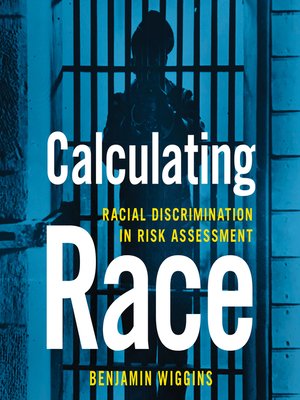Calculating Race
audiobook (Unabridged) ∣ Racial Discrimination in Risk Assessment
By Benjamin Wiggins

Sign up to save your library
With an OverDrive account, you can save your favorite libraries for at-a-glance information about availability. Find out more about OverDrive accounts.
Find this title in Libby, the library reading app by OverDrive.



Search for a digital library with this title
Title found at these libraries:
| Library Name | Distance |
|---|---|
| Loading... |
In Calculating Race, Benjamin Wiggins analyzes the historical relationship between statistical risk assessment and race in the United States. He illustrates how actuarial science transformed the nature of racism and helped usher racial disparities in wealth, incarceration, and housing from the nineteenth century into the twentieth. Wiggins begins by tracing how the life insurance industry utilized race in its calculations at the end of the nineteenth century, focusing particularly on Prudential and its aggressive battles with state regulators to discriminate against clients and adjust rates on the basis of race. He then turns his focus to the collection of racial statistics in the Illinois state penitentiary system in the late nineteenth century and the state's subsequent development of predictive sentencing and parole formulas in the 1920s that weighed race as a key factor. Next, he investigates the role of race in the state-sponsored mortgage insurance program of the Federal Housing Administration between the start of the New Deal and the beginning of the Cold War and its prolonged effects on mortgage lending. Wiggins concludes with an analysis of the use of race in the statistical risk assessments across financial institutions and government programs during the post-civil rights movement era.







